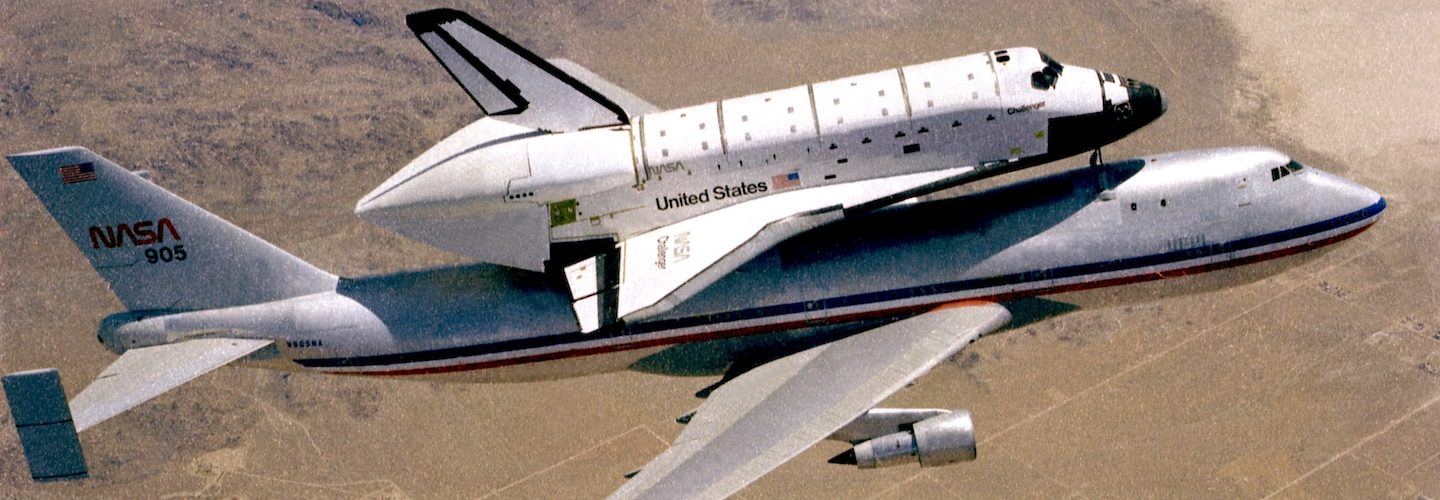Here are a few things I think are worth sharing:
Challenger: The Final Flight (Netflix 4-part docuseries, 2020)
This mini-doc is an in-depth account of the circumstances that led to the Challenger disaster in 1986. For me, it proved a helpful way to revisit the disaster for a third time and, importantly, via a slightly different lens. The first time I studied the Challenger was in college as an engineering student and we focused on the fact that the O-ring design was carried over from the Apollo program without a proper re-design specific to the Space Shuttle. So, effectively, it was a suboptimal barrier that was doomed to fail eventually, given the shear forces, temperature extremes, and nature of the solid fuel. The second time I studied the Challenger was when I worked at the consulting firm McKinsey & Co. and there it was through the lens of culture and the obligation to dissent. The mid-level engineers at Morton Thiokol, the company that built the solid rocket boosters, had very clear concerns about the exact situation that eventually unfolded–a very cold weather launch–yet their concerns were overruled by some in senior management, especially at NASA, right up to the day of the fateful voyage. And yet here in this documentary, I was able to study this tragic story for a third time. While this documentary also focused on the latter point (the former point was not mentioned, actually), they highlighted something I had not understood before, a third factor that doomed the Challenger: political pressure and the unintended consequences it can have.
(Here’s a good review of the docuseries from The Ringer.)
§
Addressing climate change in a post-pandemic world (McKinsey Quarterly, April 7th, 2020)
Until I read this article I had not really seen the ways in which studying COVID (or other pandemics) could offer a lens through which we could also think about climate change. And while we’re on that topic, my interest in understanding both climate science and its implications on both mitigated and unmitigated life is huge. What I want to do is what I always do on topics I need to learn more on—bring it to the podcast. For this topic, I want to have several viewpoints. First, I want two views on the projections of where the climate will be without mitigation and (more importantly) what the implications will be. Second, I would like to have two discussions with people offering different views for the best strategy to mitigate. Suggestions greatly appreciated.
– Peter






Peter, Matt Ridley, the British science writer (“How Innovation Works”, “The Red Queen”, “Genome”, etc.) is an epidemiologist who has studied climate science and would be a good person with whom to discuss climate mitigation strategies.
Hi, Regarding a climate change podcast Born Lomborg would be perfect or someone from his camp.
For the science of climate change: Katherine Hayhoe or Michael E. Mann.
For the economics it has to be Jason Bordoff.
I saw Mike Shellenberger recommended to you on Twitter and I must say he is a very disingenuous actor.
All the best,
Kayhoe and Mann are quite respectable climate scientists (unlike most of the other suggestions Peter’s call has elicited …), but their expertise is in modeling the effects of greenhouse gasses and other factors on the climate; Peter’s looking for people with expertise in what to do to mitigate it, which is a separate question (though they’ve both been vocal in broad general terms about the need for policy and tech solutions).
Hey Peter. A sincere question. What sources are you using for the science facts behind the theory of global warming? I have tried looking for them but the articles I’ve found typically come down to an argument about consensus.
Peter, Glad you will present Climate science from an empirical view. Politics have destroyed nearly all objectivity. Climate change is as inevitable as death itself. During the Miocene epoch, before man, Carbon was significantly more prolific and oceans were 100 ft. higher. Is this an inevitable earth cycle we return to, with or without human influence? Can/should humans intervene to stop it? Continental drift may have influenced climate as much as anything. If all Americans sacrificed all climate effecting activity, would China/India’s more massive effects on climate be dented? Is the entire discussion mute? Are we discounting the earth’s astonishing ability to heal itself? So looking forward to an “intelligent” discussion. Thanks so much!
I’d love to have some deep dives on carbon mitigation. I’d be interested to hear a pod with Paul Hawken (or better, a scientific advisor to him, such as Katharine Wilkinson https://www.kkwilkinson.com/ )on his “silver buckshot” solution:
https://smile.amazon.com/Drawdown-Comprehensive-Proposed-Reverse-Warming/dp/0143130447/
Because it has some dramatic claims but spread across a quite diverse portfolio, I’d like to hear it paired with a skeptic (in the proper sense) of the plan. In particular, I understand that the claims on regenerative agriculture (and especially the role for herd animals in same, hyped up by Mark Hyman on The Drive a while back) are not widely accepted:
https://doi.org/10.1007/s10584-020-02673-x
(These authors only have narrow expertise on this one part of the plan; it would be ideal to have someone who could critically overview the whole manifesto — though I recall that Peter was quite intrigued by Hyman’s claims on this front, so maybe this would be of interest to him and to me mutually, though I’d still then like to hear a more comprehensive critic).
An aspect that is rarely emphasized or examined is that water vapor represents something like 95 % of total greenhouse gases in the atmosphere (in terms of number of molecules, I assume). This makes sense if you consider the evaporation off the oceans, lakes, transpiration from trees, and it is also contained in auto exhaust. It stands to reason that its concentrations would be enormously higher. What seems to be happening is that temp changes upward are moving even faster than climate models woulds predict that do not take water vapor into consideration. Since increased evaporation leads to increased heat retention, which leads to increased evaporation, it is possible we are entering into a vicious feedback cycle in which water evaporation produces more water evaporation, leading to self-sustaining heat increases that are almost unavoidable. Carbon Dioxide is balanced naturally by plant growth, especially if the oceans are kept healthy and have a large green biomass. It is also scavenged by acid rain. Methane also degrades in the air over a few years, although I don’t recall what the components are it degrades into. Controlling fracking and venting of natural gas from flaring, and wildcat sites that don’t even have pipelines to take the gas to market would help. So CO2 and Methane can take care of themselves. But if the increases in temps we have already caused are triggering a self-sustaining evaporation cycle of water, the only thing we may be able to do is cloud-seeding to increase rain condensation, or Bill Gates scheme to scatter reflective particles in the atmosphere to dim the sun. Here is a link that discusses the issue https://www.greenandgrowing.org/is-water-vapor-a-greenhouse-gas/
Peter,
There is a small book by a Geologist. His name is Gregory Wrightstone. The book is called inconvenient facts. He also has an App of the same name.
One revealing slide shows the Greenland Ice Core data on temperature over the last 10,000 years which is quite astounding. The earths temperature has been much higher in the past than it is today.
One would have to assume than all the natural forces which caused these fluctuations are gone and only mans contribution is significant.
The other fact is that CO2 is not the main Greenhouse gas by far. Water vapor is the major contributor to the greenhouse effect.
The other fact is that the CO2 in ppm is about 420. The ice core data show that the the prior CO2 has been as high as 2300 ppm in the past.
If you Google the greening of the earth NASA satellite images show a marked greening of the Earth. Sub Sahara is greening and animals are returning to these areas. Food production is also increased. Plants use CO2.
You can find many proponents of Climate Change. I think Mr. Gregory Wrightstone would offer a well documented opposing opinion.
Thanks,
Gary C. Smith,M.D.
If you look at the amount of extra CO2 added during the roughly 200 years of industrial activity versus the total CO2 already resident in the Earth’s atmosphere naturally prior to that time, it is a tiny fraction. Industrially sourced CO2 is a tiny fraction of pre-existing, natural, “background” CO2. So added CO2 CANNOT be the source of global warming.
Either more methane is getting leaked than we suspect, or astronomical sources such as (1) Solar activity is my favorite suspect), (2) we may be entering a galactic dust cloud of invisible particles that are heating up the outer atmosphere, (3) internal heat from geothermal convection from the earth’s core radiating outward through the crust and ocean floor
RE addressing climate change… I’d love to hear you address the angle I heard put forward by George Gilder (Life after Google) that we are leaving a mini ice age and a lot of the observations are related to this and not so much a direct consequence of human activity.
Katharine Hayhoe, director of the Climate Science Center at Texas Tech University
Now Peter’s audience is revealed to include two groups: people who really want to dig deep and come to little-recognized insights in areas of emerging science and ongoing scientific murkiness, and those brought in because they reflexively distrust any kind of scientific “authority,” no matter how competent or robust, and jump on board with Peter because of his involvement with some seemingly-contrarian views and mistake him for a driver on a bandwagon of ironically self-declared independent thinkers.
A second suggestion: Bill Gates, who is coming out with a new book on climate mitigation early next year:
https://www.gatesnotes.com/How-to-Avoid-a-Climate-Disaster
https://www.gatesnotes.com/Energy/My-plan-for-fighting-climate-change
https://www.geekwire.com/2020/geekwire-summit-bill-gates-says-world-can-avoid-climate-disaster-learn-lesson-pandemic/
He’s shown an ability to master complex subjects and think seriously and independently about how to confront big problems, and a willingness to use his resources to go after them. While he’s doubtless a difficult person to get for an interview, you have some potential routes to contact him, and he might appreciate the opportunity for a deep-dive format.
I suggest Anthony Watts – host of The world’s most viewed site on global warming and climate change – https://wattsupwiththat.com/.
Also William Happer – From recent post announcing his new paper: Dependence of Earth’s Thermal Radiation on Five Most Abundant Greenhouse Gases
W. A. van Wijngaarden1 and W. Happer2
1Department of Physics and Astronomy, York University, Canada, [email protected]
2Department of Physics, Princeton University, USA, [email protected]
https://arxiv.org/pdf/2006.03098.pdf
From CFACT – “Happer is probably best known to our readers as a leading skeptical scientist. He co-founded the prestigious CO2 Coalition and recently served on the staff of the National Security Council, advising President Trump. But his career has been as a world class radiation physicist at Princeton. His numerous peer reviewed journal articles have collectively garnered over 12,000 citations by other researchers.”
More on Happer’s recent paper – this could be a game changer – for a math guy like Peter he should find the math and equations Happer covers in his paper of interest.
See the links to the paper at: https://www.cfact.org/2020/10/26/study-suggests-no-more-co2-warming/
Dependence of Earth’s Thermal Radiation on Five Most
Abundant Greenhouse Gases
W. A. van Wijngaarden1 and W. Happer2
Read the climate science from the pre-eminent source/seminal source, the Interplanetary Panel on Climate Change (IPCC). The IPCC’s reports are by design apolitical and moderate because the reports have to have the unanimous consent of all parties to the UNFCC to have the science published–for example meaning China, Brazil, Saudi Arabia, Barbados and the United States have to reach a consensus for a report to be published.
The link is here for the reports and models:
https://www.ipcc.ch/
All climate science and multilateral policy on climate change mitigation and adaptation is based on the IPCC reports and scientific framework. Policy is formulated based on this multilateral scientific investigation. Kudos however to the rest of academia buttressing the diplomatic efforts and actors.
Also by the way, we are beyond mitigation targets. As someone who is a consultant in this field, stakeholders are realistically geared towards futureproofing and adapting for the worst of climate change because we have already flown by the window of mitigation. Right now, we are aiming for transitioning for the purpose of not having full crop collapse, ecosystem collapse, and dire asymmetrical weather negative feedback loops.
On Mitigation-
Here is a most informative webinar regarding mitigation using biomass- biochar- regenerative agriculture etc.
Taking part in the discussion are expert scientists discussing sequestration of carbon in soil/ how to implement regenerative farming. Presentation / Overview with Thomas Casten, who may make an excellent guest.
”Thomas Casten, Board Member of the Climate Institute, will deliver a keynote presentation based in part on his testimony for the House Select Committee on Climate Change at the United States House of Representatives.”
https://www.youtube.com/watch?v=QlZ7CniI4Nk&feature=emb_rel_end
I have a suggestion for a climate science guest from an interesting, more political perspective. Benji Backer is the President and Founder of the American Conservation Coalition, a climate organization dedicated to finding free market solutions to climate change and addressing it from a more conservative lense. He is 23 years old, a recent graduate, and has made waves in the field. His perspective could be a welcome change of pace. Thanks for all the information and content.
When this was first posted I suggested having Bill Gates on, as he was “coming out with a new book on climate mitigation … [and] has shown an ability to master complex subjects and think seriously and independently about how to confront big problems, and a willingness to use his resources to go after them.” The book is now out:
https://smile.amazon.com/How-Avoid-Climate-Disaster-Breakthroughs/dp/0385546130/
Happily, I’ve now learned of a possible way to contact him (since Gates is doubtless hard to reach and Peter is not with a major media organization). John Arnold is an investor in, and Boardmember of, Breakthrough Energy Ventures, Gates’ energy innovation VC:
https://www.breakthroughenergy.org/investing-in-innovation/bev-board-and-investors
Arnold would have the dual advantage of being able to tell Gates first-hand of the kind of depth and insight that Peter gets into with guests on The Drive.